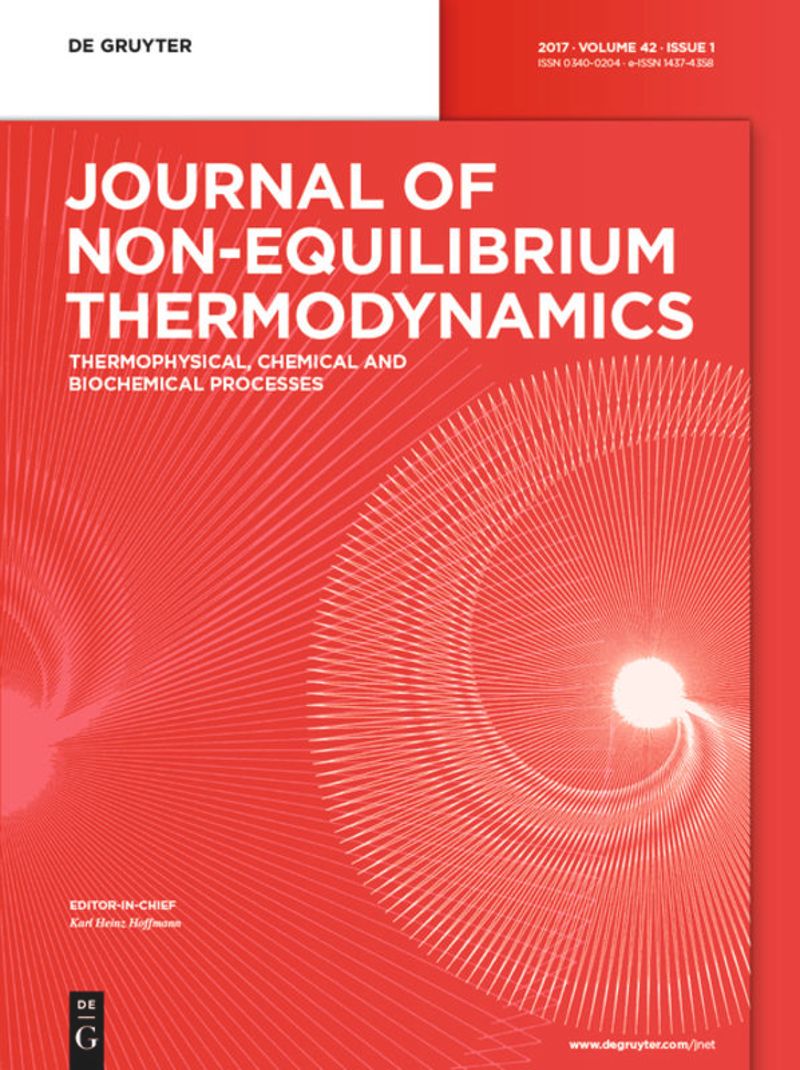Composite liquids under high-power heating: superheat of water in micro-explosion of water-in-fuel droplets
IF 4.3
3区 工程技术
Q1 MECHANICS
引用次数: 0
Abstract
The article analyses the degree of water superheating with respect to the liquid-vapour equilibrium line in experiments on the micro-explosion of a composite droplet comprised of two immiscible liquids. The analyses were carried out for water-in-fuel drops under conditions of high-power heating. This degree is compared with the mechanical effect of droplet decay, involving the formation of daughter droplets. Our attention was drawn to the smallness of the degree of superheating preceding the decay. A model of the boiling up of such a droplet is constructed taking into account the sources of premature boiling up of water inherent in micro-explosive experiments. The dependencies of the boiling up temperature of water on the heating rate obtained in the model turned out to be in accordance with the experimental data across a wide range of heating rates. A hypothesis about the local superheating of the transition layer, which is not detected in the experiment, is formulated. Thus, a step has been taken to clarify the essence of the mismatch of the degree of superheating of water recorded by macroscopic equipment along with a completely satisfactory generation of daughter droplets serving as the basis for advanced fuel technology.大功率加热下的复合液体:水包水燃料液滴微爆炸中的水过热现象
文章分析了在由两种不相溶液体组成的复合液滴微爆炸实验中,水相对于液气平衡线的过热程度。分析是在大功率加热条件下对燃料水滴进行的。这种程度与液滴衰变的机械效应(包括子液滴的形成)进行了比较。我们注意到衰变前的过热程度很小。考虑到微爆炸实验中固有的水过早沸腾的来源,我们构建了这样一个液滴沸腾模型。模型中得出的水沸腾温度与加热速率的关系在很大的加热速率范围内都与实验数据相符。实验中没有检测到过渡层的局部过热,因此提出了一个假设。因此,在完全令人满意地生成作为先进燃料技术基础的子液滴的同时,我们已经迈出了一步,澄清了宏观设备记录的水过热程度不匹配的本质。
本文章由计算机程序翻译,如有差异,请以英文原文为准。
求助全文
约1分钟内获得全文
求助全文
来源期刊
CiteScore
9.10
自引率
18.20%
发文量
31
审稿时长
1 months
期刊介绍:
The Journal of Non-Equilibrium Thermodynamics serves as an international publication organ for new ideas, insights and results on non-equilibrium phenomena in science, engineering and related natural systems. The central aim of the journal is to provide a bridge between science and engineering and to promote scientific exchange on a) newly observed non-equilibrium phenomena, b) analytic or numeric modeling for their interpretation, c) vanguard methods to describe non-equilibrium phenomena.
Contributions should – among others – present novel approaches to analyzing, modeling and optimizing processes of engineering relevance such as transport processes of mass, momentum and energy, separation of fluid phases, reproduction of living cells, or energy conversion. The journal is particularly interested in contributions which add to the basic understanding of non-equilibrium phenomena in science and engineering, with systems of interest ranging from the macro- to the nano-level.
The Journal of Non-Equilibrium Thermodynamics has recently expanded its scope to place new emphasis on theoretical and experimental investigations of non-equilibrium phenomena in thermophysical, chemical, biochemical and abstract model systems of engineering relevance. We are therefore pleased to invite submissions which present newly observed non-equilibrium phenomena, analytic or fuzzy models for their interpretation, or new methods for their description.

 求助内容:
求助内容: 应助结果提醒方式:
应助结果提醒方式:


